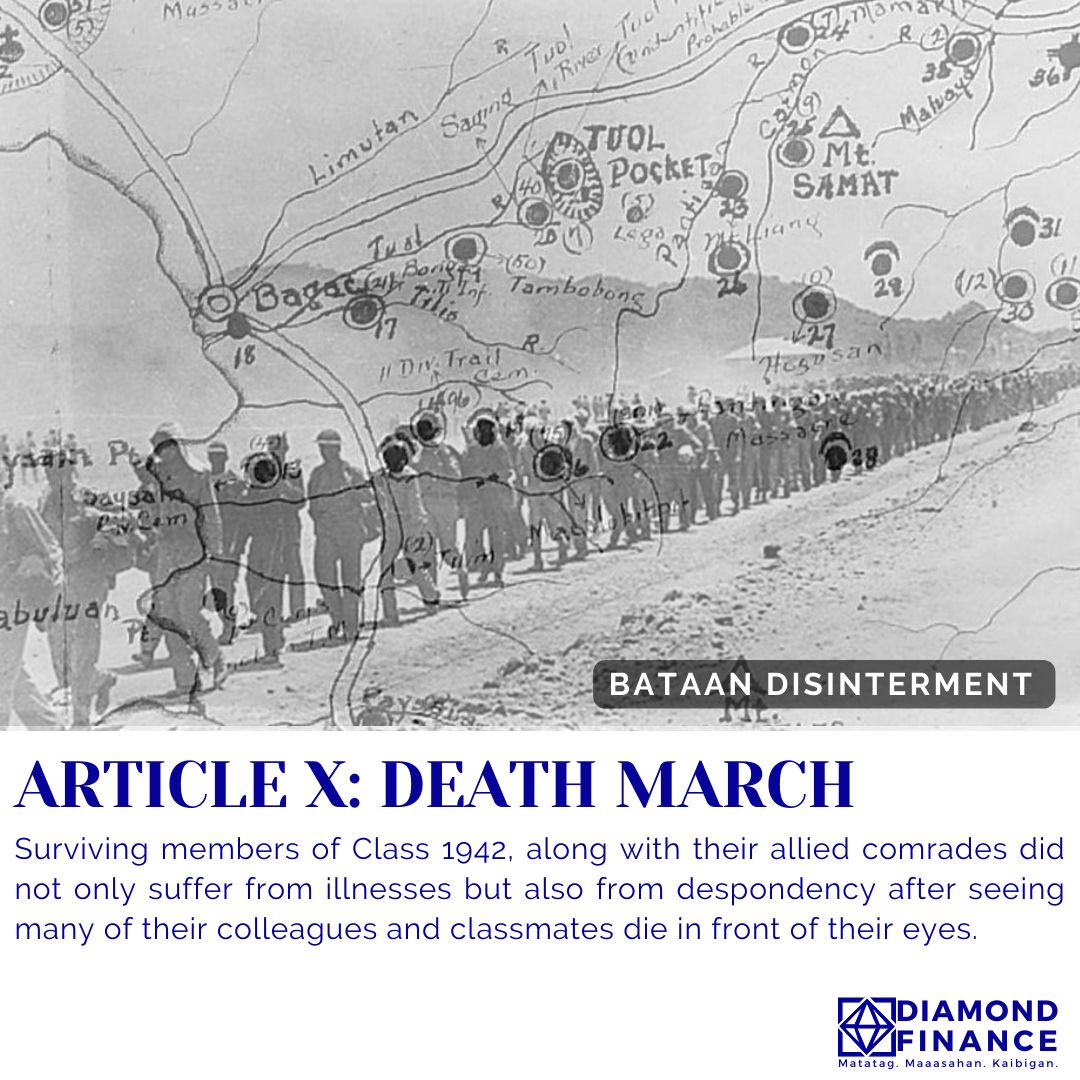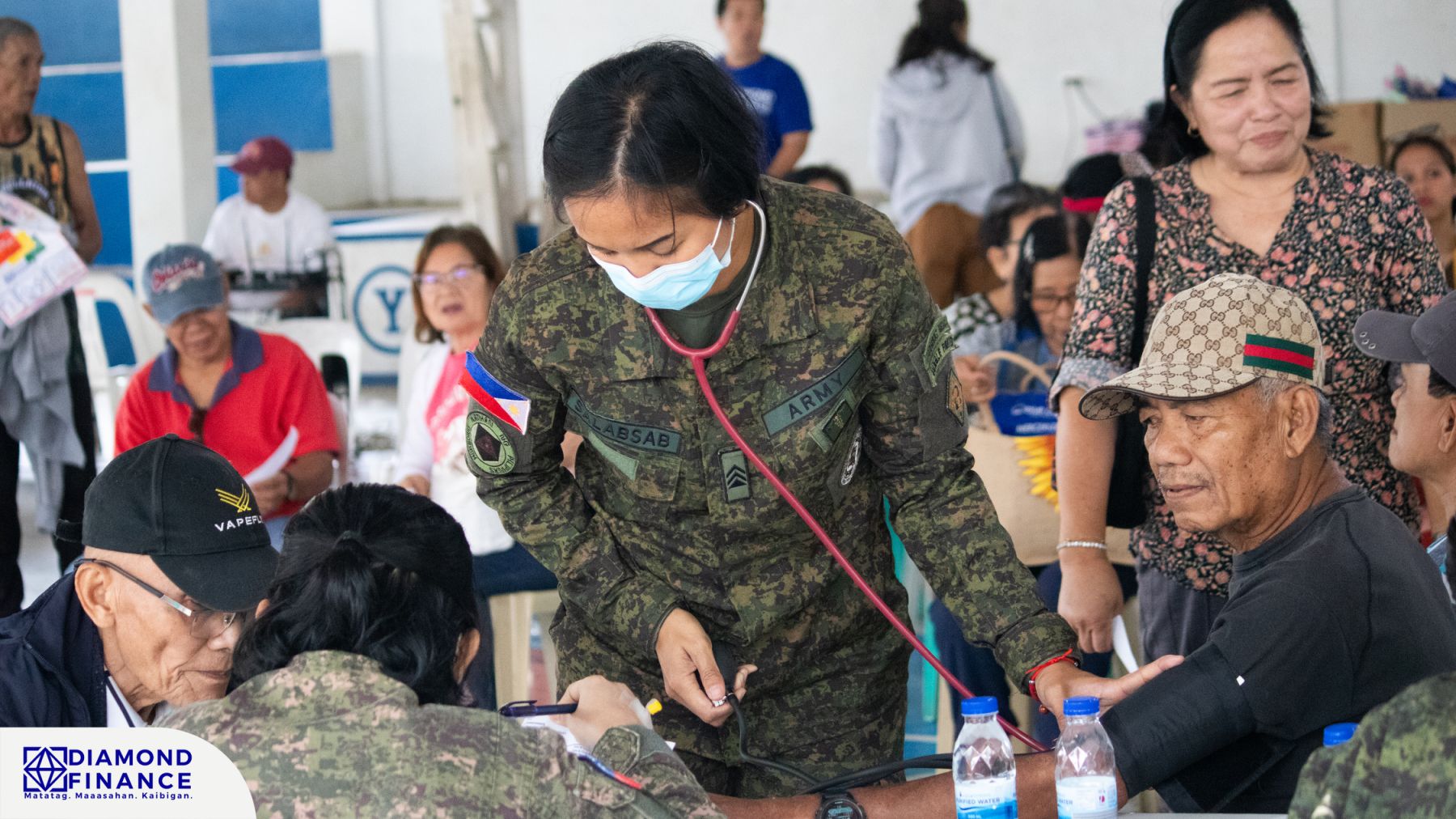Upon the surrender of the defenders of Bataan and Corregidor, the Japanese military rounded up all Filipino-American soldiers, gathering them into groups of 100. The Japanese military leaders underestimated the number of the captives and were therefore unprepared, for thousands of fighting men were taken prisoners. The enemy’s cruelty showed immediately as they executed nearly 400 Filipino officers. They were ordered to force-march barefoot in the blistering heat towards Camp O’Donnell in Tarlac province, 104 kilometers away and took them five days to complete. As the brutality continued, these men were also forced labor during the march. Anyone who fell, attempted to escape or stopped to quench their thirst from a puddle at the sideroad, were shot or bayoneted by the Japanese guards. These poor men were given little food and water during the march which took about, more or less, five days. The guards also chased out or killed those Filipino civilians who tried to give the prisoners water or small amount of food. Those who were not able to stand up the next morning were either buried alive or beaten to death.
At the rail head at San Fernando Pampanga, 100 men or more were jammed inside small boxcars or wagons that were meant for only 40 people. There was little air inside the cars and hundreds of men died during this trip because of suffocation. An additional march was ordered to finally reach their destination in Camp O’Donnell. The camp was designed for only 10,000 men but the Japanese military crammed nearly 60,000 men who survived the Bataan Death March. There was little water running, limited supply of food, no medical care and poor sanitation, making’s their lives even more miserable. Because of these, many prisoners contracted malaria, dysentery and diseases that caused the death of around 400 men daily.
The men of the USAFFE endured all these, including the surviving members of PMA Classes 1942 and 1943. Not only did they did suffer from illnesses but also from despondency after seeing many of their colleagues and classmates die in front of their eyes. From September through December of 1942, some of the Filipino soldiers were gradually paroled as long as they had to sign an oath that they will not participate in any guerilla activity. But that is another story.




